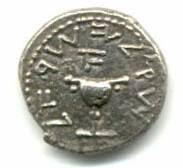The recall of GM's Chevy Cobalt and other compacts is very much in the news. An interesting story that is developing is how slowly the government acted and how it waited to take action in regards to this serious fault at Government General Motors:
The Detroit Free Press: Government's safety agency missed clues to Cobalt issues
Missed clues seems to be quite the understatement.
For years, the U.S. government’s auto safety watchdog sent form letters to worried owners of the Chevrolet Cobalt and other General Motors small cars, saying it didn’t have enough information about problems with unexpected stalling to establish a trend or open an investigation.The data tell a different story.
An Associated Press review of complaints to the National Highway Traffic Safety Administration shows that over a nine-year period, 164 drivers reported that their 2005-2007 Chevrolet Cobalts stalled without warning. That was far more than any of the car’s competitors from the same model years, except for the Toyota Corolla, which was recalled after a government investigation in 2010.
Stalling was one sign of the ignition switch failure that led GM last month to recall 1.6 million Cobalts and other compact cars, including the Saturn Ion, Pontiac G5 and Chevrolet HHR. Another 971,000 cars from model years 2008-2011 were recalled late Friday to find faulty replacement switches, bringing the total to about 2.6 million.
It gets even more interesting:
The government opened an investigation into the Corolla in late 2009, which led to the 2010 recall of nearly 1.3 million cars to replace faulty engine control modules that could make the cars stall without warning.The agency investigated the Toyota complaints even though there were no reports of deaths or injuries related to the stalls. By contrast, it had already learned about deadly crashes in the Cobalt.
NHTSA did go full-bore enforcement on Toyota, when there had been no reports of injuries or deaths, but was curiously slow to act with GM after deaths had already been reported.
Was this uneven enforcement perhaps due to a massive bureaucratic oversight?
Or instead, was it a happy coincidence that while there was swift enforcement against Toyota, a major competitor of GM, GM had just been bailed out and essentially owned by the US Government and certainly didn't need any negative news about its vehicles at the time these faults were being heavily reported?

1 comment:
Might have gotten a bit of help with an approach that worked for Ford - when the Pinto was exploding recall was a more expensive option than paying the families of the dead and injured. So they let them explode and paid as they had to.
Post a Comment